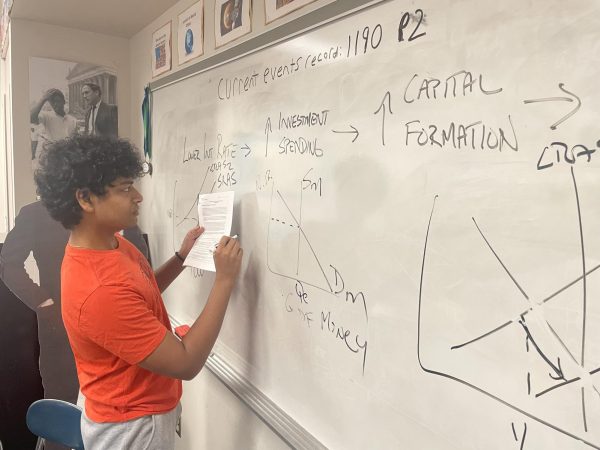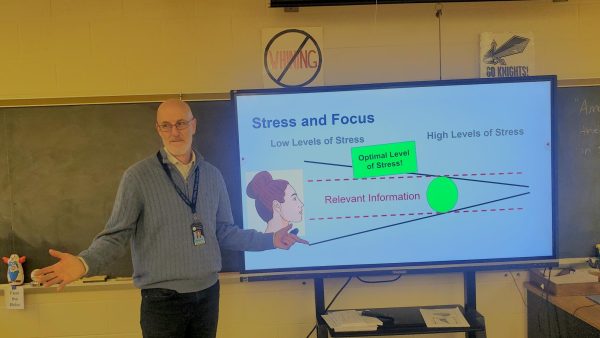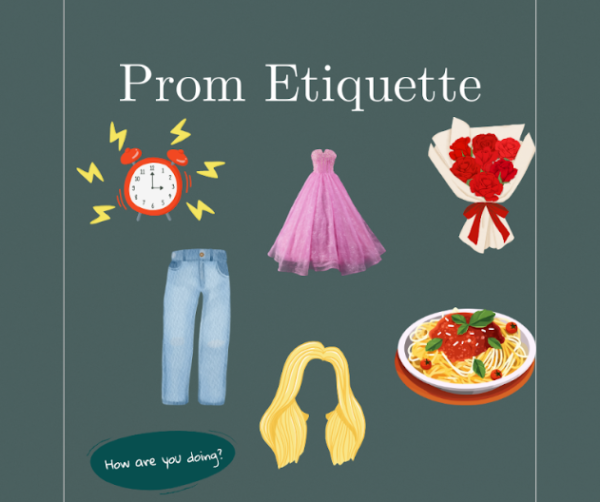You’re not stupid
Olivia Hannigan touches on something that most high schoolers can relate to – the feeling of failure.
“What is wrong with me?”
It’s murmured under everyone’s breath, maybe after tests or after going the wrong direction in the halls. Sometimes students yell it when they get upset at themselves for studying something over and over but still not understanding what any of it means. Students accuse themselves of being stupid for these small things. Chances are, you’ve even told this to yourself at one point in time.
You might think you’re stupid, but you’re really not.
Think about what you’re bad at. Something that you’ve failed time and time again and no matter how hard you try to study, how many study sessions have been attended, how many friends and family members you’ve talked about it with, it never seems to click like everything else.
But just because something doesn’t click doesn’t mean that you’re stupid. It just means that you have different strengths and weaknesses, it just means that you’re human. Everyone feels this way in one shape or form, but nobody wants to or feels comfortable enough to talk to someone about it.
Having five siblings with very different personalities and strengths, I see this all the time. Same thing applies to my friends. My older brother is very musical and plays multiple instruments; my other older brother is very social and funny; my older sister is very artistic; my younger brother is very athletic, and my other younger brother is better at building and creating things. They all have their different strengths, and they all have their different weaknesses. My younger brother isn’t artistic at all, and my older sister isn’t athletic.
Just because they don’t understand something doesn’t mean that they don’t understand anything. This is everywhere in high school. Some students might be amazing at history or English, but not understand anything in biology or math. Some accept this and continue to live like they’re never going to understand it so there’s no reason to try. Others work harder but still struggle with the concept.
Students use jokes as a way to make themselves feel better, or appear more nonchalant about failing a test. Almost everyone is guilty for saying he or she only has two brain cells, or that he or she is too stupid to understand anything.
It may seem like just a joke at first, but it has more of a mental effect than one might think. Repeating things over and over again could lead to it becoming a truth. In a study conducted by Vanderbilt University in 2015, people were asked to state if a sentence was true or false. In almost every case, the repeated statements made them more true. This included statements such as “Oslo is the capital of Finland”. Even if it wasn’t true, the more these people heard these things the more they believed them. Which, thinking about it now, is probably the only reason the Flat Earth society is actually a thing. Someone said it enough to make people believe it.
Regardless, these thoughts can lead to a student believing that he or she is less intelligent than they actually are. That can lead to a cycle of negativity that can completely surround a person and change how they view both themselves and the world around them.
So don’t think of only what you’re bad at, focus on what you’re good at while also working on the things you’re not so good at. Comparisons help. Good at sports but bad at math? Try learning how far the batter is going to hit the ball with an equation. Good at art but bad at biology? Draw a little comic or make a small sculpture to help yourself! There are so many different ways to learn that are so rarely touched on, so there really are no limits. It’s never “just notes” or “just a lecture”, it can be what you make of it.
So no, you’re not stupid.












